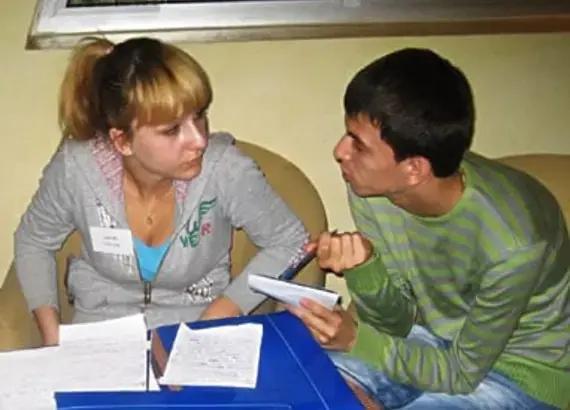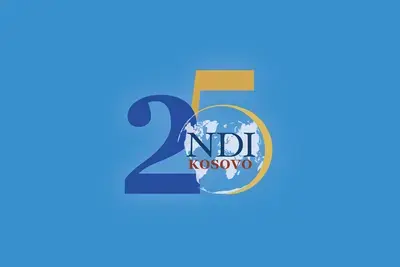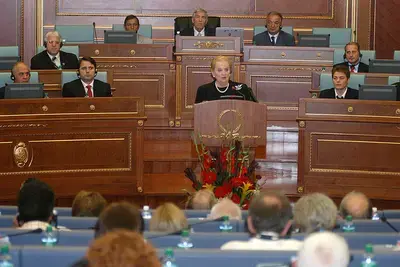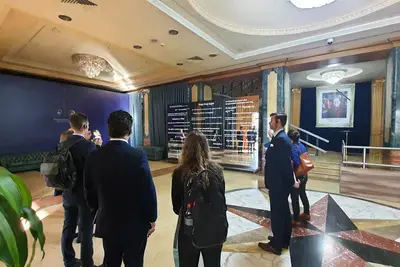
Success Story
Supporting Tolerance and Leadership Among Youth in Southern Serbia and Kosovo
Growing up in isolation from one another, young Serbs and Albanians born in Kosovo and Serbia have little opportunity, and often little desire, to interact with each other and with peers from other ethnic communities. Factors that brought their parents together when the countries were part of Yugoslavia – common language, economic opportunities and a lack of borders – no longer exist and have been replaced with misperceptions, fear, and disrespect.
To help bridge that divide, NDI, since mid-2007, has worked across ethnic lines with nearly 350 high school students in Kosovo and southern Serbia on advocacy, leadership and debate. Working together, the Serb and Kosovar participants have learned how to approach decision makers in their communities to address such issues as updating an outdated public library, establishing youth centers, reopening local sports halls and cinemas, and cleaning up the environment around a popular but polluted lake.
In Gjilan, one of Kosovo’s fastest-growing municipalities which maintains close social and economic ties to Serbia, a group of 20 students is advocating to reopen a student gym close to the city’s educational complex. The building has recently been occupied by a local women’s NGO, and as a result has been closed to students.
Last summer, NDI advised a group of students as they developed an action plan for improving the safety and learning environment in their schools that included press conferences, meetings with education officials and town hall meetings to brainstorm ideas. Together, the students achieved their goals and are now seeking ways to expand the projects and continue working together.
As the culmination of an NDI program to encourage young people from different ethnic communities to solve mutual problems peacefully, 48 Albanian, Serb and Roma students from Kosovo and Serbia gathered in Ohrid, Macedonia, in January 2009 to compete in a debate tournament.
Students were assigned to 16 multi-ethnic teams and communicated in a mixture of Albanian, Serbian and English. For many, this was the first time meeting peers from across the border. The three rounds of debate focused on non-political topics of common interest, such as dress codes and the use of mobile phones in public schools, opening a safe space for students to communicate nonviolently across ethnic lines and country boundaries.
During free time in the evenings, the multi-ethnic students continued to socialize with each other. “Personally, this was the first time that I worked together with students from different ethnicities and I do think that we managed to move at least a few steps towards multi-ethnic tolerance,” said Arbër Rudari, an Albanian student.
As NDI’s program, funded by the U.S. State Department’s Bureau for Democracy, Human Rights and Labor, comes to a close, the Institute will continue its outreach to students in northern Kosovo and southern Serbia, encouraging them to continue their advocacy and debate efforts during 2009.
Pictured above: A debate-preparation session in Ohrid, Macedonia during a January 2009 tournament.
–
Published on Feb. 13, 2009



